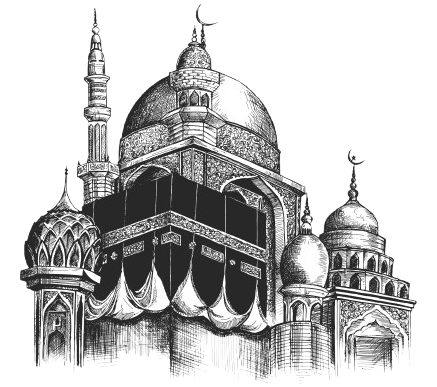Muslim Prayer Time Dubai: Salah timings, Adhan and rakat
Islam, the final of three Abrahamic beliefs, emerged after Judaism and Christianity in the 7th century. It is a monotheistic religion that focuses to fully present Allah (God). Muslims believe that the Quran, revealed to the Prophet Muhammad (PBUH) through the Angel Gabriel, is the last source of divine guidance.
Muslims try to live a life dedicated to the wishes of Allah, recognizing the independent desire. Faith in Islam is created on six main beliefs: belief in Allah, their angels, their books, their messengers, the day of judgment, and fate, both good and bad.
These beliefs shape the spiritual structure of every Muslim and guide their actions, morality and world vision. Islam encourages compassion, justice and accountability, emphasizes a balanced life that nurtures both personal development and community welfare. Through doing prayer on time, charity and reflection, Muslims constantly tried to strengthen their relationship with Allah and fulfill their purpose on Earth.

Five columns of Islam
Islamic practice is based on five fundamental pillars:
- Shahdah (declaration of faith): Confirming that “there is no God, but Allah, and Muhammad is the messenger of Allah.” This testimony marks entry into Islam.
- Salah (Prayer): Performing five daily ritual prayers at the scheduled time. This is a direct connection between the believer and Allah.
- Zakat (charity): Purifying both money and soul, an essential work of giving 2.5% money to the poor and needy annually.
- Sawm (fasting): Celebrated during the month of Ramadan, Muslims fasted from morning to sunset, avoiding food, drinks, and sinful behavior.
- Hajj (pilgrimage): Physically and economically capable people are required a journey of Mecca once in a lifetime. This includes rituals such as standing in Tawaf, Sa’i, and Arafat.
Salah: The Core of Worship
Salah, also known as Namaz, or prayer, is a fundamental obligation for every adult Muslim. It is performed five times daily according to the Dubai prayer time schedule:
- Fajr: Pre-dawn (2 rakats)
- Dhuhr: Midday (4 rakats)
- Asr: Afternoon (4 rakats)
- Maghrib: Just after sunset (3 rakats)
- Isha: Night (4 rakats)
Additional prayers include:
- Jumuah: Friday congregational Prayer (instead of Dhuhar)
- Witr: Offered Odd-Nambard Rakats after Isha
- Tahajjud: Voluntary Night Prayer
- Tarawih: Performed during Ramadan
- Eid Prayer: Eid al Fitr and Eid al -Adha introduced
Check the latest prayer time in Dubai and UAE prayer time to ensure timely observance.
Structure of Salah & Rakat Movements
Each Salah consists of rakats (units), including specific postures:
- Qiyam (standing): hand folded, verses reciting
- Ruku (Bowing): bending on the waist with hands on the knees
- Sujud (Prostration): touching the ground with forehead
- Tashahhud (sitting): sitting on knees for supplication
- Tasleem (Salutation): Concludes the prayer by turning the head to each side
Following the Dubai prayer time ensures each act is performed at its prescribed moment, fostering spiritual focus.
Adhan: The Call to Prayer
Adhan is a public call for prayer, given by a muezzin from the mosque. Call contains phrase such as:
- Allahu Akbar (God is great)
- Ashhadu an la ilaha illallah (I witness that there is no God but Allah)
- Ashhadu anna Muhammadur Rasoolullah (Muhammad is the messenger of Allah)
- Haya ‘Ala-S-Salah (Hasten for prayer)
- Assalatu khairum-minan-naum (Prayer is better than sleep — for Fajr only)
The Adhan signals the start of each Dubai prayer time, followed by the Iqamah, which signals the immediate start of prayer.
Preparing for Salah: Wudu & Niyyah
- Wudu (Ablution): A ritual purification that includes face washing, weapons washing, wiping of the head, and washing legs. This is necessary before every prayer time in Dubai.
- Niyyah (intention): A heartfelt intention to pray only for Allah was made slightly before the beginning.
Fard, Sunnah, and Nafl Prayers
- Fard: Obligatory and non-negotiable prayers
- Sunnah: Recommended based on Prophet Muhammad’s practices
- Nafl: Voluntary, offering additional spiritual benefit
Congregational Prayer in Mosques
Although Muslims can pray anywhere, the prayer of the congregation in a mosque is highly encouraged, especially at the scheduled Dubai prayer time. Mosques serve as spiritual and social centers and promote unity within the community. Jumuah prayers are particularly important on Friday and include a sermon (khutbah).
The Role of Prophets and Angels
Muslims all believe in the Prophet – from Adam, Noah and Moses to Jesus and Muhammad (PBUH), from the last Prophet. Angels are divine messengers who fulfill the commandments of Allah.
For the latest prayer time in Dubai, Dubai prayer time updates, and UAE prayer time schedules, visit Times of Dubai—your trusted source for Middle East news and Islamic updates.

